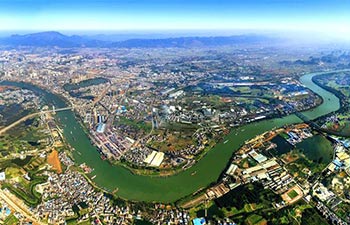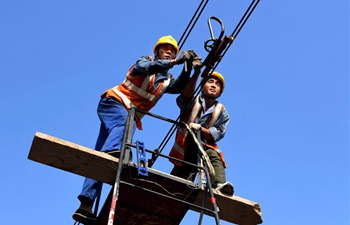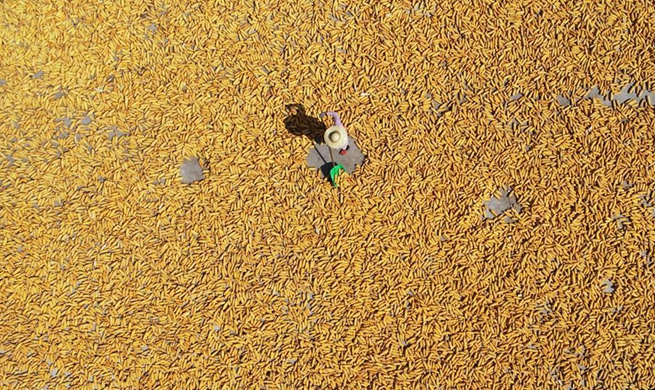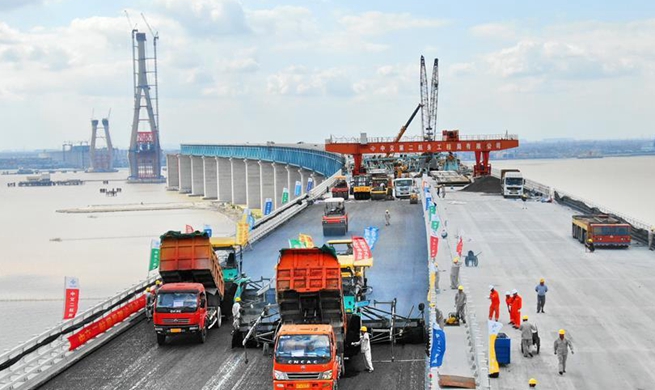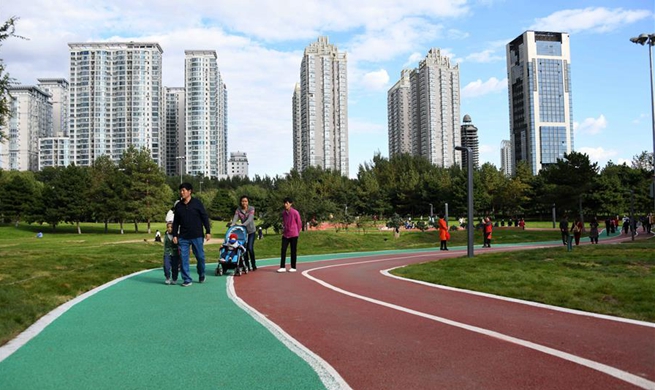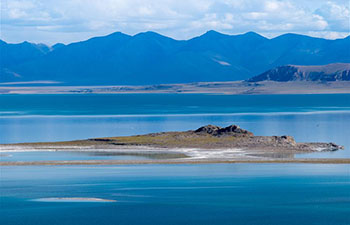UNITED NATIONS, Sept. 25 (Xinhua) -- Uphold multilateralism, tackle climate change, keep the perils of new technologies at bay. These are the messages from UN Secretary-General Antonio Guterres to world leaders who gather in New York for the high-level week of this year's UN General Assembly.
"Our future rests on solidarity. We must repair broken trust. We must reinvigorate our multilateral project," Guterres told the leaders on Tuesday before the leaders made their own speeches from the marble podium.
"Our world is suffering from a bad case of 'trust deficit disorder'," Guterres said. "And multilateralism is under fire precisely when we need it most."
Trust is at a breaking point -- trust in national institutions, trust among states, trust in the rules-based global order, he said. "Within countries, people are losing faith in political establishments, polarization is on the rise and populism is on the march."
Among countries, cooperation is less certain and more difficult. And divisions in the Security Council are stark. Trust in global governance is also fragile, as 21st-century challenges outpace 20th-century institutions and mindsets, said the UN chief.
"We have never had a true system of global governance, and much less a fully democratic one," said Guterres.
In the face of massive, existential threats to people and the planet -- but equally at a time of compelling opportunities for shared prosperity -- there is no way forward but collective, common-sense action for the common good, he said.
Together, as guardians of the common good, leaders have a duty to promote and support a reformed, reinvigorated and strengthened multilateral system, he said.
"We need commitments to a rules-based order, with the United Nations at its center and with the different institutions and treaties that bring the (UN) Charter to life. And we need to show the added value of international cooperation by delivering peace, defending human rights and driving economic and social progress for women and men everywhere."
He called the attention of the world leaders to two particular dangers: climate change and the abuse of new technologies.
"We have reached a pivotal moment. If we do not change course in the next two years, we risk runaway climate change," he said. "Climate change is moving faster than we are, and its speed has provoked a sonic boom SOS across our world."
According to the World Meteorological Organization, the past two decades included 18 of the warmest years since record-keeping began in 1850. The concentration of carbon dioxide in the atmosphere is the highest in 3 million years -- and rising, he noted.
Making matters worse, world leaders are not doing enough, he said, asking for greater ambition and a greater sense of urgency.
He asked for the implementation of the Paris Agreement. "It has immense potential to set us on the right course, but its targets, which represent the bare minimum to avoid the worst impacts of climate change, are far from being met."
"Our future is at stake. Nothing is immune -- climate change affects everything and everything can be undermined. Keeping our planet's warming to well below 2 degrees (from pre-industrial levels) is essential for global prosperity and the security of nations," said the UN chief.
He asked world leaders to embrace new technologies for climate action.
"Clean energy is more affordable and competitive than ever. If we pursue the right path, climate action could add 26 trillion U.S. dollars to the global economy by 2030. Green economy policies could create 24 million new jobs."
Far from being a fundamental threat to the economy, climate action is generating new industries, new markets, more jobs and less dependency on fossil fuels, he said. "The real danger is not the threat to one's economy that comes from acting. It is, instead, the risk to one's economy by failing to act."
Guterres warned world leaders of the downside of new technologies, such as artificial intelligence.
"The impacts of new technologies on warfare are a direct threat to our common responsibility to guarantee peace and security," said Guterres.
The weaponization of artificial intelligence is a growing concern. The prospect of weapons that can select and attack a target on their own raises multiple alarms, and could trigger new arms races, he warned. "Let's call it as it is. The prospect of machines with the discretion and power to take human life is morally repugnant."
"Heaven forbid, any new war could very well include a massive cyber-attack not only targeting military capacities, but also critical civilian infrastructure," he said.
At the same time, technology is being misused by terrorists and for sexual exploitation and abuse, he noted.
Malicious acts in cyberspace, such as disinformation campaigns, are polarizing communities and diminishing trust among states. And more and more people are getting their information from news or social media feeds that echo their views, reinforce tribalism and assure people that they are right and the other side is wrong, he said.
Technological advances may disrupt labor markets, bringing about socio-economic impacts, as traditional jobs change or disappear, even as the number of young job-seekers continues to grow, he observed.
With technology outracing institutions, cooperation between countries and among stakeholders will be crucial, including UN member states, the private sector, research centers, civil society and academia, said the UN chief.
More work on these issues, aimed at building trust between and within nations, will be needed to ensure the responsible use of new technologies, he said. "I urge you to use the United Nations as a platform to draw global attention to these crucial matters and to nurture a digital future that is safe and beneficial for all."






